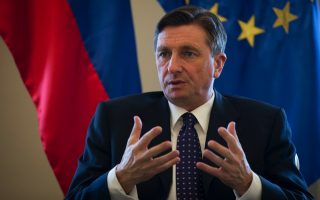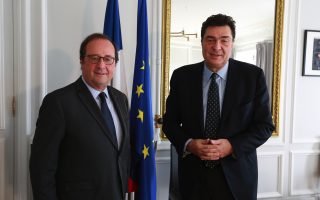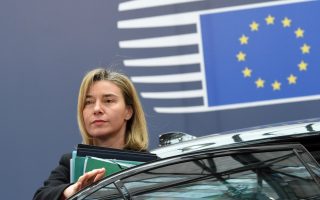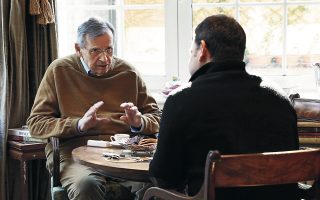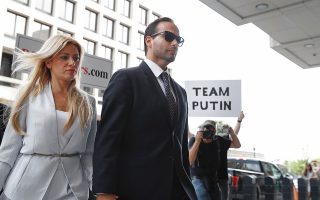D’Estaing to Kathimerini: We need ‘a clear vision’ for Europe
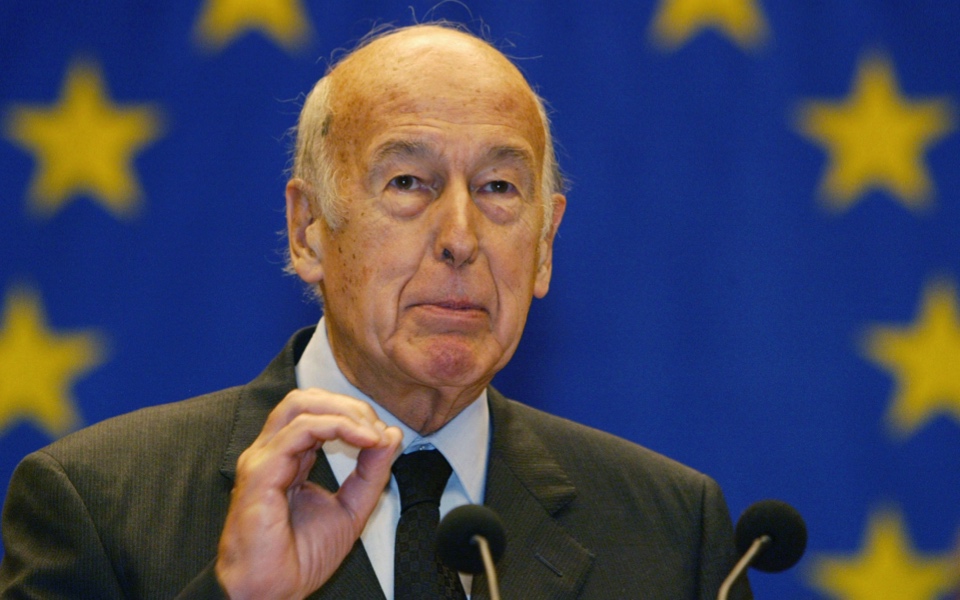
On the eve of European elections, Kathimerini spoke with a “wise” European who may have the answers to some of the most fundamental questions challenging the Continent right now: How worrying is the rise of euroskeptic parties? What steps need to be taken in order to restore citizens’ faith in the European project? Is Greece out of the woods yet?
Former French president Valery Giscard d’Estaing is one of the key architects of the European Union, a historic leader whose vision of a European family determined his political career. During his presidency, France and Germany set the foundations of the common currency – the euro – and established what was to become the most powerful EU institution, the European Council.
As a friend of Greece and close friend of late Greek statesman Constantine Karamanlis, d’Estaing was instrumental in Greece’s admission to the then European Economic Community in 1981. He was a also a fervent supporter of a Constitution for Europe but his proposal was rejected by the French electorate by referendum in 2005.
What is the main difference between EU leaders at your time and EU leaders of today regarding their approach to Europe?
At the time, we had a clear vision about where the European unification should go, which steps should be implemented in order to create an “ever closer union” between the member states. This included joining efforts in order to create a common currency, greatest success ever since the durable peace situation on our continent. Today, no political leader seems to see that only a strong European Union can become an economic superpower at the same level of the other giants, USA and China. They seem more preoccupied with short-term gains, placing national interests above everything. There is no vision and no clear political commitment for the future of Europe anymore.
Do you feel that the rise of euroskeptic and populist leaders could tear the EU apart? What needs to be done so that the people of Europe keep supporting the European project?
No. The rise of euroskeptic or nationalist movements in Europe is a fact we cannot ignore. But fear about this will only paralyze us instead of making us analyze the reasons for it and providing some answers to the citizens who feel neglected in the European debate. People need to see the objective. They need to get a clear vision with an agenda and the next steps of the European integration. I propose the creation of a European confederation based on fiscal unification. In the line of what the founding fathers of Europe created sixty years ago, the next step would be to unify our tax system: same currency, same taxes.
You played a crucial role in Greece’s EU membership. After the adventures we went through in 2015 – almost leaving the eurozone – how do you see the future of Greece now that the bailouts are over?
As I have always felt strongly linked to Greece, I can only admire the courage of the Greek people who went through these difficult times. Constantine Karamanlis was a personal friend of mine, and it is thanks to his legacy that Greece could find the way to democracy and adhere, in 1981, to the European Union. I wish that the future will be more promising for the Greek people, and that democracy will recover the vitality it embodies as cradle of our European cultural identity. We must never forget that “democracy” is a Greek word.
